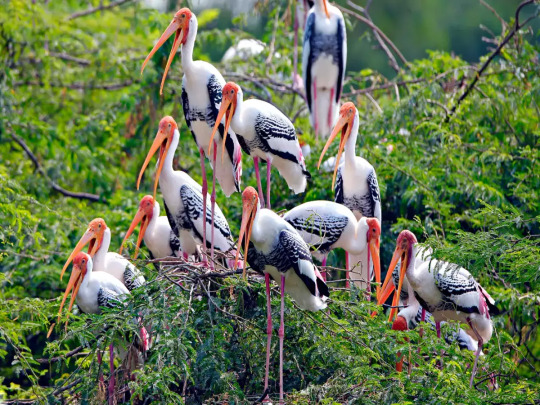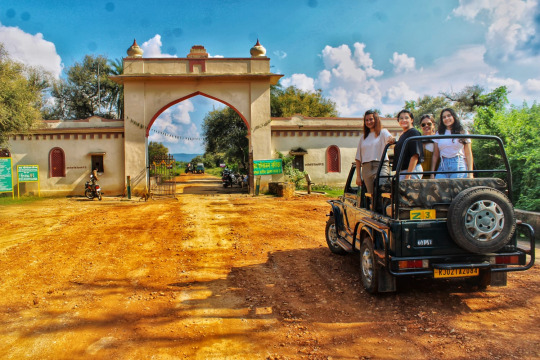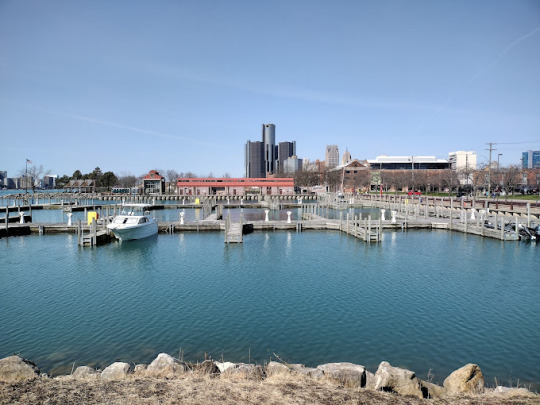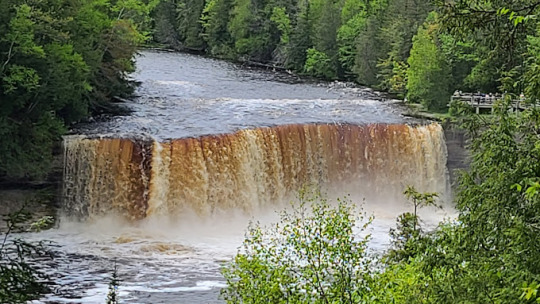#Great Swamp National Wildlife Refuge
Explore tagged Tumblr posts
Text

Great Swamp National Wildlife Refuge. May 2024.
15 notes
·
View notes
Text
*Named a Best Book of the Year by The New Yorker and Literary Hub!*
*A 2022 NBCC Awards Nonfiction Finalist and a 2023 Phillip D. Reed Environmental Writing Award Finalist*
From Pulitzer Prize winner Annie Proulx, this riveting deep dive into the history of our wetlands and what their systematic destruction means for the planet “is both an enchanting work of nature writing and a rousing call to action” (Esquire).
I learned something new - and found something amazing - on every page. - Anthony Doerr, author of All the Light We Cannot See and Cloud Cuckoo Land
A lifelong acolyte of the natural world, Annie Proulx brings her witness and research to the subject of wetlands and the vitally important role they play in preserving the environment - by storing the carbon emissions that accelerate climate change. Fens, bogs, swamps, and marine estuaries are crucial to the earth’s survival, and in four illuminating parts, Proulx documents their systemic destruction in pursuit of profit.
In a vivid and revelatory journey through history, Proulx describes the fens of 16th-century England, Canada’s Hudson Bay lowlands, Russia’s Great Vasyugan Mire, and America’s Okeefenokee National Wildlife Refuge. She introduces the early explorers who launched the destruction of the Amazon rainforest, and writes of the diseases spawned in the wetlands - the Ague, malaria, Marsh Fever.
A sobering look at the degradation of wetlands over centuries and the serious ecological consequences, this is “an unforgettable and unflinching tour of past and present, fixed on a subject that could not be more important” (Bill McKibben).
A stark but beautifully written Silent Spring - style warning from one of our greatest novelists. - The Christian Science Monitor
#what I wanted to share was the bbc sounds reading of this#it was terribly interesting and engaging#but it's not available anymore#annie proulx#fen bog and swamp
12 notes
·
View notes
Text


Fen, Bog and Swamp: A Short History of Peatland Destruction and Its Role in the Climate Crisis
by Annie Proulx (2022)
lifelong acolyte of the natural world, Annie Proulx brings her witness and research to the subject of wetlands and the vitally important role they play in preserving the environment—by storing the carbon emissions that accelerate climate change. Fens, bogs, swamps, and marine estuaries are crucial to the earth's survival, and in four illuminating parts, Proulx documents their systemic destruction in pursuit of profit. In a vivid and revelatory journey through history, Proulx describes the fens of 16th-century England, Canada's Hudson Bay lowlands, Russia's Great Vasyugan Mire, and America's Okeefenokee National Wildlife Refuge. She introduces the early explorers who launched the destruction of the Amazon rainforest, and writes of the diseases spawned in the wetlands—the Ague, malaria, Marsh Fever.
Canopy of Titans: The Life and Times of the Great North American Temperate Rainforest
by Jessica Applegate & Paul Koberstein (2023)
The product of years of on-the-ground reporting, this richly illustrated book celebrates the beauty and complexity of one of the world's great forests. It provides readers with easy-to-grasp insights into the science behind carbon sequestration and the value of forests as climate mitigation. The story is organized along two broad narratives: A geographical arc runs from south-to-north beginning with the redwood forest of Northern California and ending in the Tongass National Forest in Alaska. A temporal arc starts with wildfires raging across the American West in the summer of 2020 and ends at the UN Climate Change Conference in Glasgow in November 2021, with many historical flashbacks in between. Along the way, Applegate and Koberstein pull back the curtain on policies of governmental bodies that have seriously diminished the rainforest's capacity to store carbon, and uncover industry practices that have led to the destruction of swaths of a major ecological resource. Additionally, using an environmental justice perspective, the book shines a light on the indigenous communities that have lived in the rainforest for millennia, and the impact forest policies have had on their lives.
5 notes
·
View notes
Text
The Law and the Swamp (1 Timothy 1:15)
This slideshow requires JavaScript. The Environmental Protection Agency (EPA) ordered the cleanup of wastewater emptying into the Great Swamp National Wildlife Refuge in New Jersey. To comply with the law, one township built a new water treatment plant. The newer and larger plant, however, now dumps much more water into the 6,000-acre swamp, threatening the balance of nature. Flooding has…
0 notes
Text
Events 11.3 (after 1960)
1960 – The land that would become the Great Swamp National Wildlife Refuge is established by an Act of Congress after a year-long legal battle that pitted local residents against Port Authority of New York and New Jersey officials wishing to turn the Great Swamp into a major regional airport for jet aircraft. 1961 – U Thant is unanimously appointed as the 3rd Secretary-General of the United Nations, becoming the first non-European individual to occupy the post. 1964 – Lyndon B. Johnson is elected to a full term as U.S. president, winning 61% of the vote and 44 states, while Washington D.C. residents are able to vote in a presidential election for the first time, casting the majority of their votes for Lyndon Johnson. 1967 – Vietnam War: The Battle of Dak To begins. 1969 – Vietnam War: U.S. President Richard M. Nixon addresses the nation on television and radio, asking the "silent majority" to join him in solidarity on the Vietnam War effort and to support his policies. 1973 – Mariner program: NASA launches the Mariner 10 toward Mercury. On March 29, 1974, it becomes the first space probe to reach that planet. 1975 – Four Bangladeshi politicians are killed in the Dhaka Central Jail. 1978 – Dominica gains its independence from the United Kingdom. 1979 – Greensboro massacre: Five members of the Communist Workers Party are shot dead and seven are wounded by a group of Klansmen and neo-Nazis during a "Death to the Klan" rally in Greensboro, North Carolina, United States. 1980 – A Latin Carga Convair CV-880 crashes at Simón Bolívar International Airport in Venezuela, killing four. 1982 – The Salang Tunnel fire in Afghanistan kills 150–2000 people. 1986 – Iran–Contra affair: The Lebanese magazine Ash-Shiraa reports that the United States has been secretly selling weapons to Iran in order to secure the release of seven American hostages held by pro-Iranian groups in Lebanon. 1986 – The Compact of Free Association becomes law, granting the Federated States of Micronesia and the Marshall Islands independence from the United States. 1988 – Sri Lankan Tamil mercenaries attempt to overthrow the Maldivian government. At President Maumoon Abdul Gayoom's request, the Indian military suppresses the rebellion within 24 hours. 1992 – Democratic Arkansas Governor Bill Clinton defeats Republican President George H. W. Bush and Independent candidate Ross Perot in the 1992 United States presidential election. 1996 – Abdullah Çatlı, the leader of the Turkish ultranationalist organization Grey Wolves, dies in the Susurluk car crash, leading to the resignation of Interior Minister Mehmet Ağar (a leader of the True Path Party). 1997 – The United States imposes economic sanctions against Sudan in response to its human rights abuses of its own citizens and its material and political assistance to Islamic extremist groups across the Middle East and East Africa. 2014 – One World Trade Center officially opens in New York City, replacing the Twin Towers after they were destroyed during the September 11 attacks. 2020 – The 2020 United States presidential election takes place between Democratic Joe Biden and Republican incumbent President Donald Trump. On November 7, Biden was declared the winner.
0 notes
Text
This is good news if successful. The national park provides great tourist income to the small towns on the edge of the park and a natural barrier against the tornados, hurricanes and flooding due to climate change. Waycross Georgia is the gateway to the park. This is my home town.
#Okefenokee Swamp#national parks#vital information exchange#vital community#vitalportal#thevitalportal#additional information#vital media#blacklivesmatter#climate science#climate change#forest preservation#natural habitat#vital politics#blacktwitter#myvitaltv
1 note
·
View note
Text
Tumblr app has been serving me ads about the race for a local representative, and the opening frames have big text across the screen: “The Great Dismal Swamp”.
And every time, every time, I have a double take that it’s not someone posting about Elden Ring or Dark Souls stuff. Even though I know about the Great Dismal Swamp! It’s a National Wildlife Refuge!
0 notes
Text
Tranquil Escapes: Best Secluded Vacation Spots in Florida for Solo Travelers

If you’re looking to escape the hustle and bustle, Florida offers a variety of peaceful, secluded destinations perfect for solo travelers. From tranquil beaches to hidden nature reserves, these serene spots provide the ideal environment for relaxation, reflection, and adventure. Here are the Best Quiet Vacation Spots In Florida For Solo Travelers where you can unwind and reconnect with nature.
1. Cayo Costa State Park
Located off the coast of Southwest Florida, Cayo Costa is a barrier island that’s accessible only by boat or ferry. With miles of unspoiled beaches, mangrove swamps, and lush forests, this is one of the Best Quiet Vacation Spots In Florida For Solo Travelers. Whether you’re looking to camp, hike, or simply relax on the pristine beaches, Cayo Costa offers ultimate tranquility.
2. Amelia Island
For those who prefer a mix of quiet and charm, Amelia Island is an excellent choice. With its peaceful beaches, historic downtown, and nature trails, this island offers a serene escape while still providing opportunities for exploration. The slower pace and fewer crowds make it perfect for a solo traveler looking to unwind.
3. Grayton Beach State Park
Situated along the famous 30A in the Florida Panhandle, Grayton Beach is known for its natural beauty and laid-back vibe. The state park offers a quiet escape with hiking trails, coastal dune lakes, and miles of uncrowded beaches. Whether you’re walking along the white sand shores or kayaking in the lakes, it’s a peaceful haven for solo adventurers.
4. St. George Island
Another hidden gem along Florida’s forgotten coast, St. George Island is a peaceful barrier island with minimal development and pristine beaches. It’s one of the Best Quiet Vacation Spots In Florida For Solo Travelers seeking solitude and nature. With options for biking, fishing, and beachcombing, it’s a perfect place to slow down and enjoy the simple beauty of the outdoors.
5. Boca Grande
If you’re looking for old Florida charm, Boca Grande on Gasparilla Island is the place to be. This quaint, quiet destination offers serene beaches, charming boutiques, and great spots for fishing. With a limited number of visitors and an emphasis on relaxation, Boca Grande is a solo traveler’s paradise.
6. Cedar Key
A tiny town on Florida’s Gulf Coast, Cedar Key feels like a world away from the more touristy destinations. Its slow pace, natural beauty, and absence of chain restaurants make it one of the Best Quiet Vacation Spots In Florida For Solo Travelers. Kayaking, birdwatching, and wandering through the quiet streets are just a few ways to unwind here.
7. Sanibel Island
Famous for its shell-covered beaches and wildlife, Sanibel Island is perfect for solo travelers who want to relax and reconnect with nature. With limited commercial development and an abundance of quiet beaches and nature preserves, you can spend your days collecting seashells, cycling, or simply soaking in the serene surroundings.
8. Captiva Island
Neighboring Sanibel, Captiva Island offers similar tranquility with an added dose of luxury. It’s a small, secluded spot where you can enjoy the quiet beaches, watch stunning sunsets, and explore the quaint shops and restaurants. Captiva’s laid-back atmosphere makes it one of the Best Quiet Vacation Spots In Florida For Solo Travelers.
9. Big Pine Key
Located in the Lower Florida Keys, Big Pine Key is far from the crowds and commercialism of Key West. It’s home to the National Key Deer Refuge and offers quiet spots for snorkeling, diving, and exploring nature. If you’re seeking an off-the-beaten-path destination in the Keys, Big Pine Key is a top choice.
10. Falling Waters State Park
For solo travelers who love nature and quiet hikes, Falling Waters State Park in the Florida Panhandle is a serene retreat. The park is home to Florida’s tallest waterfall, beautiful hiking trails, and tranquil campsites. It’s a peaceful destination for those looking to disconnect and enjoy nature.
Final Thoughts
For solo travelers seeking peaceful getaways, Florida offers a wide array of hidden gems that provide solitude and relaxation. From untouched beaches to quiet nature reserves, these Best Quiet Vacation Spots In Florida For Solo Travelers offer the perfect backdrop for your next escape. Whether you’re looking to meditate on a beach, hike through pristine forests, or explore quaint coastal towns, Florida has a tranquil spot waiting just for you.
0 notes
Text
Fun Adventures in the Great Dismal Swamp National Wildlife Refuge

by Samantha Jafar Once seen as wasteland fit, the swamp's treasures are now recognized and safeguarded, offering a sanctuary to experience nature’s untouched splendor..... Introduction Enveloped in mystery and rich history, the Great Dismal Swamp National Wildlife Refuge is a testament to nature's resilience and beauty. Established in 1974, this sprawling refuge protects one of the largest remaining swamps in the Eastern United States. Once seen as a wasteland fit only for draining and development, the swamp's ecological treasures are now recognized and safeguarded, offering a wildlife sanctuary for those seeking to experience nature’s untouched splendor. The Great Dismal Swamp National Wildlife Refuge: A Storied Past The history of this area is a tapestry woven with tales of Native American tribes, colonial explorers, and runaway slaves who found refuge within its dense foliage. George Washington himself was among the first to attempt to drain the swamp for agricultural use.,,, Read More... Read the full article
0 notes
Text
National Parks in Rajasthan: Discovering the Desert's Natural Wonders
Rajasthan's National Parks are a collection of natural treasures. The parks are rich in biodiversity, and Rajasthan is thought to be home to a diverse array of plants and animals despite its terrain. With our Rajasthan Tour Packages, explore the wilderness of India's majestic state.
Renowned for its abundant tiger population, Rajasthan's Ranthambore National Park is one of the country's best places to see tigers. But Rajasthan is home to another incredible place to see tigers: Keoladeo National Park, also called Bharatpur Bird Sanctuary.
This wetland sanctuary in Rajasthan is a haven for thousands of migrating birds who visit it year. The various bird species visit this location for vacation, just as depicted in the film Migration. Why should the fun be limited to humans? Not birds, then? One of the most well-known national parks in Rajasthan is Keoladeo National Park, which is a very magical location.
National Parks In Rajasthan
1. Bharatpur National Park

Currently known as the Keoladeo National Park in Rajasthan, Bharatpur National Park is a well-known avifauna sanctuary and a bird-watching heaven detailed among UNESCO’s World Heritage sites. The 29 km resource is domestically referred to as Ghana and is a mosaic of dry grasslands, woodlands, forest swamps, and wetlands.
Known for its fame, this National Park in Rajasthan is home to some of the world's most abundant bird populations. This man-made structure is well-known for being the nesting site for migratory and local birds, particularly aquatic birds. What excites you about this location? This area was originally used by the British and royalty as a shooting area for ducks, but in 1971 it was turned into a refuge for birds and other wildlife.
A distinct way to uncover the wildlife at the Bharatpur Bird Sanctuary is the Wildlife Safari here, which takes you through the coronary heart of the forests. If you wish to spot birds more carefully Rickshaw Safari is the amazing choice for you.
2. Sariska National Park In Rajasthan

One of Rajasthan's best national parks is Sariska National Park. It is also a natural sanctuary in Alwar that offers a mix of history and nature with a verdant landscape peppered with ruins and historic landmarks. The sanctuary, which was formerly the Alwar state's royal hunting grounds, is today a prime tiger habitat, with its deep forests supporting a wide variety of wildlife. Many people are aware of its accomplishment in relocating and reintroducing the magnificent Bengal tiger.
3. Desert National Park In Rajasthan

Situated in close proximity to Jaisalmer city, Desert National Park is widely recognized as one of Rajasthan's most renowned national parks in India. 20% of this amazing national park's terrain is made up of dunes.
Here, you can catch a variety of migratory and indigenous species, such as sand grouse, falcons, vultures, and spotted eagles. It's possible that you will also get to see the Great Indian Bustard, which is endangered. Because it's a military location, the roads are kept in excellent condition and are usually empty of visitors, making your stay very comfortable.
Situated in the golden regions of Jaisalmer, the Desert National Park is a fascinating retreat and one of the most daring destinations to explore. This particular desert habitat was created in 1980 and allows you to see Rajasthan's intricate wildlife world while also developing a lovely tale of survival inside the parched regions of the state.
CONCLUSION
In conclusion, Rajasthan's national parks are a veritable gold mine of natural treasures, exhibiting the area's astounding biodiversity and breathtaking scenery. These parks offer a distinctive experience for environment lovers and animal enthusiasts alike, ranging from the parched stretches of the Thar Desert to verdant oases abounding with species. Investigating these protected places highlights the value of conservation and illustrates the complex web of life in Rajasthan's many ecosystems. Traveling through the national parks of Rajasthan offers a profound experience of the desert's wild character in addition to exploring the natural beauties of the region.
0 notes
Text
Most Famous Picnic Place in Michigan

Michigan is a state that is known for its natural beauty and outdoor activities. There are many excellent places throughout the state where you can get away from the hustle and bustle of city life, including picnic spots that offer great views and access to nature, including lakes and streams.

Pictured Rocks National Lakeshore
Pictured Rocks National Lakeshore, America’s first National Lakeshore, is along the southern shore of Lake Superior in Michigan’s beautiful Upper Peninsula. With stunning beaches, 10 inland lakes, and nearly 100 miles of trails, everyone can find something to enjoy at Pictured Rocks!
No matter the time of year, there is something to do at Pictured Rocks!
Summer: visit beaches, backpack, and camp (permit required). Looking for views of the cliffs? The best way to see the cliffs is from the water on a commercial boat tour.
Fall: Autumn colors in the Upper Peninsula are often breathtaking, drive the park roads to view the changing leaves! Hunting and fishing opportunities (state regulations apply) abound during fall!
Winter: Cold weather brings otherworldly frozen waterfalls, called “curtains”. Snowshoeing, skiing, and ice fishing are other popular winter activities. Check road closures and conditions before heading into the park in the winter.

William G. Milliken State Park and Harbor
William G. Milliken State Park and Harbor is located in the heart of Detroit, just east of downtown, along a portion of the city’s Detroit Riverwalk, which provides easy access for fishing, biking, walking and rollerblading.
The park is divided into three areas, including the harbor, the picnic shelter area and the popular berm area. Thanks to recent renovations, the berm now boasts an accessible walkway, handrails and new trees, shrubs and grass. The berm area is especially popular for picnics and wildlife viewing.
At the top of the berm, visitors can view the river and our neighbors in Canada through two new spotting scopes, courtesy of the Detroit River International Wildlife Refuge and Enchroma, that provide an enhanced color view for visitors who are color blind. The berm also boasts an accessible walkway and handrails.
The state harbor provides 52 slips, as well as showers, a laundry facility, grills and picnic tables.
The park is conveniently located near the Outdoor Adventure Center, Belle Isle Park and many other major downtown Detroit attractions.

Tahquamenon Falls State Park
Tahquamenon Falls State Park encompasses nearly 50,000 acres and stretches 13-plus miles in Michigan's Upper Peninsula. The park is home to multiple campgrounds, overnight lodging facilities, a boat launch, more than 35 miles of trails and multiple overlooks to the Upper and Lower Falls.
The 200-feet-wide Upper Falls is one the largest waterfalls east of the Mississippi River. The river’s amber color is caused by tannins leached from the cedar, spruce and hemlock trees in the swamps drained by the river, and the extremely soft water churned by the action of the falls causes the river’s trademark large amounts of foam. Just 4 miles downstream is the Lower Falls, consisting of a series of five smaller falls cascading around an island. The falls can be viewed from the riverbank, all-accessible Ronald A. Olson Island Bridge (honoring DNR Parks and Recreation Division chief) over the Tahquamenon River or by a rowboat rented from a park concession. Drone use is prohibited.

Value Plus Auto Parts is an auto parts supplier in the United States. We offer all kinds of automotive parts, from tires and wheels to shocks and struts, you name it. We also carry a wide variety of accessories such as car audio systems and dash kits.
We have a comprehensive range of replacement parts for both domestic and foreign vehicles. Our team of experts is dedicated to providing high-quality products at reasonable prices. We believe in delivering exceptional customer service so we can build long-lasting relationships with our customers.
Value Plus Auto Parts 8121 Livernois, Detroit, MI 48204, USA +1 31 3931 9999 https://valueplusautopartswholesale.com https://www.google.com/maps?cid=10429367345021126601
0 notes
Text
7/6
I went to Laudholm Farms in
hopes of Grass Pink Orchid,
and Rose Pagonia in the remnant
bog along the south edge
of the property where it meets
the Drakes Island section
of Rachel Carson National Wildlife
Refuge…no Rose Pagonia, but
the Grass Pink was in bloom
along the boardwalk. I hiked
back out to the parking lot
and my trike for bug repellant,
just in case, and then did
a loop down through the wet
Maple Swamp and out to
the platform over the Little
River marsh, just to see what
I could see. It was high noon
so not the best light for photography,
but there were a Snow Egret
and a couple of Willets feeding
in the pools just there by the deck.
I got to see the Egret catch
and down first a fish, and then
some kind of big crustacean
with a long fat tail and and even
longer feelers…and then
a Great Egret flew in from way
out in the marsh by the River
channel…that was a treat
as it glided and banked, wings
wide, and then came in for
a skip and hop landing
in the long grasses beside
the pools. Just as I was about
to move on, a whole troop
of mid-schoolers in bright orange
tee-shirts came up the boardwalk
toward the deck. I shushed them
and pointed out the birds,
and was surprised at how they
stilled and looked, intent on
the white birds in the green marsh.
I left, but I hope their stillness
and silence was rewarded
with something memorable.
Maybe, like a Snow Egret
downing a big crustacean.
0 notes
Text
Events 11.3 (after 1960)
1960 – The land that would become the Great Swamp National Wildlife Refuge is established by an Act of Congress after a year-long legal battle that pitted local residents against Port Authority of New York and New Jersey officials wishing to turn the Great Swamp into a major regional airport for jet aircraft. 1961 – U Thant is unanimously appointed as the 3rd Secretary-General of the United Nations, becoming the first non-European individual to occupy the post. 1964 – Lyndon B. Johnson is elected to a full term as U.S. president, winning 61% of the vote and 44 states, while Washington D.C. residents are able to vote in a presidential election for the first time, casting the majority of their votes for Lyndon Johnson. 1967 – Vietnam War: The Battle of Dak To begins. 1969 – Vietnam War: U.S. President Richard M. Nixon addresses the nation on television and radio, asking the "silent majority" to join him in solidarity on the Vietnam War effort and to support his policies. 1973 – Mariner program: NASA launches the Mariner 10 toward Mercury. On March 29, 1974, it becomes the first space probe to reach that planet. 1975 – Syed Nazrul Islam, A. H. M. Qamaruzzaman, Tajuddin Ahmad, and Muhammad Mansur Ali, Bangladeshi politicians and Sheikh Mujibur Rahman loyalists, are murdered in the Dhaka Central Jail. 1978 – Dominica gains its independence from the United Kingdom. 1979 – Greensboro massacre: Five members of the Communist Workers Party are shot dead and seven are wounded by a group of Klansmen and neo-Nazis during a "Death to the Klan" rally in Greensboro, North Carolina, United States. 1980 – A Latin Carga Convair CV-880 crashes at Simón Bolívar International Airport in Venezuela, killing four. 1982 – The Salang Tunnel fire in Afghanistan by kills 150–2000 people. 1986 – Iran–Contra affair: The Lebanese magazine Ash-Shiraa reports that the United States has been secretly selling weapons to Iran in order to secure the release of seven American hostages held by pro-Iranian groups in Lebanon. 1986 – The Compact of Free Association becomes law, granting the Federated States of Micronesia and the Marshall Islands independence from the United States. 1988 – Sri Lankan Tamil mercenaries attempt to overthrow the Maldivian government. At President Maumoon Abdul Gayoom's request, the Indian military suppresses the rebellion within 24 hours. 1992 – Democratic Arkansas Governor Bill Clinton defeats Republican President George H. W. Bush and Independent candidate Ross Perot in the 1992 United States presidential election. 1996 – Abdullah Çatlı, the leader of the Turkish ultranationalist organization Grey Wolves, dies in the Susurluk car crash, leading to the resignation of Interior Minister Mehmet Ağar (a leader of the True Path Party). 1997 – The United States imposes economic sanctions against Sudan in response to its human rights abuses of its own citizens and its material and political assistance to Islamic extremist groups across the Middle East and East Africa. 2014 – One World Trade Center officially opens in New York City, replacing the Twin Towers after they were destroyed during the September 11 attacks. 2020 – The 2020 United States presidential election takes place between Democratic Joe Biden and Republican incumbent President Donald Trump. On November 7, Biden was declared the winner.
0 notes
Text
A Primer on South Carolina Bird Species
Birding enthusiasts living in or visiting the state of South Carolina have a number of interesting species to search for. The state, which encompasses both Atlantic coastal environments and Appalachian highlands, is home to nearly 450 species, about a quarter of which can be classified as “rare,” meaning one is unlikely to encounter them at any place in the state. The state bird of South Carolina is the Carolina wren, having replaced the mockingbird in 1948. Wrens are common throughout the state and can be found in a number of habitats, ranging from open fields to dense woodlands and swamps. The rarest bird in the state of South Carolina is the bar-tailed godwit (Limosa lapponica), a short-legged sandpiper. A moderately sized bird, the standard bar-tailed godwit has a bill-to-tail length of from 15 to 16 inches and a wingspan of about 40 inches. Females are larger than males, with average weights of 22.2 and 14.1 ounces, respectively. In terms of coloration, the bar-tailed godwit has blue-grey legs and brick red and dark brown plumage. As a migratory species, the bar-tailed godwit has been known to fly for up to eight consecutive days without stopping. On the opposite end of the spectrum, South Carolina is home to a larger number of “backyard birds” that can be observed in great numbers on a daily basis, in some cases year round. These species include the northern cardinal, the tufted titmouse, the Carolina chickadee, and the blue jay. South Carolina is also home to non-migratory populations of eastern bluebirds, sometimes described as the most sought after avian tenants in birdhouses throughout the United States. South Carolinians interested in luring a bluebird to their feeder can visit the South Carolina Bluebird Society online at southcarolinabluebirds.org. Additional backyard birds include the American robin and the mourning dove, among many more. Regardless of the rarity of any individual species, fans of birding will have only moderate success unless they make a point to visit one of the state’s premier birding locations. A few of the state’s most popular birding sites include the Savannah National Wildlife Refuge and the Pinckney Island National Wildlife Refuge on Hilton Head Island. Tourists are particularly attracted to the state’s conserved southern bottomland hardwood environments, as well as bald-cypress swamps found in locations such as the Francis Beidler Forest Audubon Center and Sanctuary and Congaree National Park. While some birding enthusiasts may simply be interested in finding and observing various species, other South Carolinians may be interested in taking a more proactive role in protecting the state’s most vulnerable animals. The South Carolina Wildlife Federation (SCWF) was established in 1931 and continues to maintain a comprehensive list of the state’s most endangered animals, including a list of vulnerable bird species. The state’s most endangered birds include the American swallow-tailed kite, Bachman’s warbler, and the red-cockaded woodpecker. The red-cockaded woodpecker, as well as Bachman’s sparrow, can be found in the pinewood regions of Francis Marion National Forest, but only by the most patient birding enthusiasts. Threatened bird species living in South Carolina range from the bald eagle to Bewick’s wren. via WordPress https://jefferyroygrant.wordpress.com/2023/01/23/a-primer-on-south-carolina-bird-species/ January 23, 2023 at 01:35AM
0 notes
Photo

Wood Frog at Great Swamp NWR (by me)
#Wood Frog#Lithobates sylvaticus#Lithobates#Ranidae#Neobatrachia#Anura#Lissamphibia#Amphibia#amphibian#frog#winter#wildlife refuge#Great Swamp National Wildlife Refuge#Great Swamp NWR#Morris County#New Jersey#mine
72 notes
·
View notes
Photo

Hiding in plain sight
#nature#nature photography#macro#macro photography#leaf#fall#autumn#spider#original photography#photographers on tumblr#swamp#great swamp national wildlife refuge#National Wildlife Refuge
7 notes
·
View notes